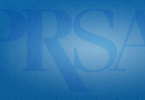Update: PRSA announced in August that it plans to offer its entire catalogue of professional development webinars to its members — for free — starting in 2012.
It’s hard to believe that 10 years have passed since PRSA last increased its annual membership dues. Back then, our “old” website was “new,” Marc Kasky was suing Nike, and “How the U.S. Army Public Affairs Commands Responded to the Pentagon Attack on 9-11” was the must-see session at the International Conference.
After holding the line for a decade with no increase in the cost of membership dues, and with annual operating costs now outpacing revenue growth, PRSA has reached a critical point financially. It’s for this reason that PRSA’s Board of Directors engaged a Business Model Task Force to audit PRSA’s financial condition, and to make recommendations to the Board of Directors for ensuring PRSA’s financial health into the future.
Among the Task Force’s recommendations — which it based on a comprehensive review of financial, membership and sponsorship trends; comparative data from other industry associations; and the evolution of PRSA’s product and service offerings — is an increase of up to $50 in the cost of dues for the regular member category.
On that basis, the PRSA Board of Directors has voted to ask the 2011 Leadership Assembly to approve a $30 increase in the cost of basic PRSA membership dues, to $255 from $225, effective Jan. 1, 2012. This is a modest increase, especially when you consider that membership dues would be priced at more than $270 today, had the cost been tied to increases in the Consumer Price Index since 2002.
The public relations profession is evolving rapidly, and if PRSA wants to stay ahead of the curve and still continue to meet its financial goal of returning 1 percent of its annual operating budget to its financial reserves, the time has come ask our members to increase their investment in PRSA through annual dues.
As national treasurer, I have seen firsthand how PRSA has balanced the introduction of new member benefits with the economic and competitive realities of the day, and the prudent way in which the Society has managed its finances.
Membership dues, which account for approximately 50 percent of PRSA’s revenue, have remained steady, but other revenue streams, such as professional development and Jobcenter, have declined in recent years due to the downturn in the economy and other market conditions.
Cost-control measures — which in recent years have included cost and operational efficiencies, elimination of underperforming products and services, staff reductions, a pay freeze, reducing Board travel and cutting sales and marketing expenditures — have eliminated $1.5 million in operating expenses from the PRSA budget. Further cuts risk compromising PRSA’s ability to deliver its current range of member benefits.
PRSA also has tried over the past decade to diversify its non-member revenue sources, including the appointment of a Non-Dues Task Force in 2009 to identify alternate means of generating income. That Task Force concluded that PRSA was not missing any practical opportunities to generate non-member revenue.
Having cut expenses and exhausted nearly every practicable source of new revenue — and all the while keeping membership dues at their 2002 levels — an increase in the cost of membership is now vital to our continued reinvestment in the Society. Among other things, funds from the proposed dues increase will be used to update existing benefits and create new ones; explore new products and services; create additional programming for senior professionals; enhance delivery systems by creating a mobile version of the PRSA website, introduce eLearning and create more digital publications; and otherwise modernize key infrastructure.
And because the issue really is one of keeping our members’ satisfaction high by ensuring PRSA’s relevance to their careers and professional success, we want — and need — your input.
In the weeks and months ahead, you can look forward to hearing more from us about the proposed dues increase, including official wording of the motion that will be put before the Leadership Assembly. But, our goal is to engage our Assembly Delegates and rank-and-file members in a rich, two-way discussion about the need for a dues increase, allowing your voices to be heard through the MyPRSA message forums, Assembly Delegate calls, blog posts, discussions with Board members and other means.
While I urge you to support the dues increase as proposed, your comments, suggestions, ideas and questions will help us ensure PRSA best meets your professional goals and aspirations.
If you’d like to learn more about PRSA’s financial condition or the Task Force’s recommendations, PRSA has set up a special page in the Governance section of the PRSA website; I hope you’ll take a moment at your convenience to review this information.
Again, we encourage you to share your thoughts, and we look forward to your feedback.
Philip Tate, APR, serves as treasurer on the PRSA Board of Directors and is senior vice president at Luquire George Andrews (LGA) in Charlotte, N.C.







Disappointing to say the least. You can bet the local chapters, which actually provide the networking and professional development opportunities that most members join the organization for, will not be able to get away with a $30 increase. National PRSA needs to deal with its funding issues by downsizing — not by raising dues.
I can understand your disappointment Robert but I urge you to look at the complete picture too. “National” has been downsizing and the organization has reached the point where, without a dues increase, the programs we all rely on and enjoy will be cut. As a member of the task force, I can tell you that we discussed the impact on the chapters extensively. If you look at the increases in offerings from national to the membership over the past many years, combined with the increasing cost of doing business, I think you’ll see that it’s remarkable we’ve hung on for ten years without an increase.
Robert,
Thanks for offering your thoughts.
As I said to Nancy above, it may help to consider the proposed dues increase in the larger context of the Chapter/National relationship. While it’s undeniable that Chapters provide important and relevant networking and professional development opportunities, I don’t think it’s possible to compare what’s available through PRSA at the local level to what’s available nationally.
For example your Chapter, the Bluegrass Chapter, has 120 members with which to network, as compared to 32,000 professional and student members with which to network nationally. It’s also unrealistic to expect a local Chapter to replicate the full-range of professional development opportunities, including conferences, that are available through PRSA national.
To your last point, PRSA has cut $1.5 million in operating expenses from the PRSA budget over the past two years. This “downsizing” has taken place from both a staffing (reduction in headcount, salary freeze) and programming (eliminating under-performing products and services) standpoint.
I hope this helps put the issue in clearer perspective.
While I appreciate all of the efforts of the Board and the staff at PRSA National to cut costs and pursue fee-based revenue streams, I worry that a $30 increase in National dues will hurt our membership. Many PR professionals in our market tell our chapter’s leaders that they would love to join the chapter, but they can’t afford the national dues.Chapters are struggling to rebuild in this economy. Increasing National dues certainly won’t help.
Nancy, As I said to Robert, I hear what you’re saying and the task force did discuss the impact on the chapters. I think it’s really important to look at the complete picture, the offerings national has for members and communicate those to local members. There’s a chart that’s been created showing the change in offerings over the past several years. It is here: http://bit.ly/iDhnnc. It’s very interesting to see what has been added/changed. PRSA has put together additional material that can be found here: http://bit.ly/ltaheK. It is always such a challenge to present changes like this but I believe with discussion during the summer, PRSA can answer all our questions.
Nancy,
As a longtime member of the Charlotte Chapter, I hear and appreciate your concerns and those of others regarding the possible impact of a dues increase on PRSA’s Chapters. It may help, though, to consider the proposed dues increase in the larger context of the Chapter/National relationship.
Research shows PRSA members value the National organization and their local Chapters almost equally, with members appreciating the National organization just a tiny bit more. In addition, much of what we do at “National” is to provide our Chapter network with financial and operational support, such as the best practices, speaker stipends, membership promotions, leadership tools and turnkey marketing materials. The level of support that we provide to our Chapters has increased in recent years, and a dues increase will help us continue to enhance the assistance we provide to these important PRSA communities.
For more on this, you might want to read Bill Murray’s column from the May issue of Tactics (http://ow.ly/5bdRx).I hope this helps to answer your question.
Just seems to be the wrong time. I can understand the need to increase dues that have remained static since 2002. However, given the economy and the financial struggles many people face, the effort seems unwise. In fact, I wonder if you might lose people.
Nancy,
As a longtime member of the Charlotte Chapter, I hear and appreciate your concerns and those of others regarding the possible impact of a dues increase on PRSA’s Chapters. It may help, though, to consider the proposed dues increase in the larger context of the Chapter/National relationship.
Research shows PRSA members value the National organization and their local Chapters almost equally, with members appreciating the National organization just a tiny bit more. In addition, much of what we do at “National” is to provide our Chapter network with financial and operational support, such as the best practices, speaker stipends, membership promotions, leadership tools and turnkey marketing materials. The level of support that we provide to our Chapters has increased in recent years, and a dues increase will help us continue to enhance the assistance we provide to these important PRSA communities.
For more on this, you might want to read Bill Murray’s column from the May issue of Tactics (http://ow.ly/5bdRx).
I hope this helps to answer your question.
Robert,
Thanks for offering your thoughts.
As I said to Nancy above, it may help to consider the proposed dues increase in the larger context of the Chapter/National relationship. While it’s undeniable that Chapters provide important and relevant networking and professional development opportunities, I don’t think it’s possible to compare what’s available through PRSA at the local level to what’s available nationally.
For example your Chapter, the Bluegrass Chapter, has 120 members with which to network, as compared to 32,000 professional and student members with which to network nationally. It’s also unrealistic to expect a local Chapter to replicate the full-range of professional development opportunities, including conferences, that are available through PRSA national.
To your last point, PRSA has cut $1.5 million in operating expenses from the PRSA budget over the past two years. This “downsizing” has taken place from both a staffing (reduction in headcount, salary freeze) and programming (eliminating under-performing products and services) standpoint.
I hope this helps put the issue in clearer perspective.
[…] the entire article at PRSAY. […]
If you consider all of the benefits, 72 cents a day is a worthy investment in our careers. When you are out of a job, having access to the world’s largest network of PR professionals is a mighty benefit.
It would be smartest if PRSA explored all alternative options for generatingincome first. Alabama Chapter’s Board members urge PRSA to explore increasing its sponsorship effort as an alternative.
If sponsorships are capable of being increased across theboard (at national workshops, pro dev conferences, website sponsors, etc.and not only at the international conference each fall) they should be.
A 13% increase ($225 to $255) may be viewedas anti-competitive with the other associations (PRCA/SPRF, RCC, IABC andAMA) that are also seeking our same members. PRSA is already the highestcost membership and I do not see how we can offer any higher quality with adues increase.
DUES COMPARISION of Universal Accreditation Board (UAB) Associations activein Alabama#1 $320: PRSA $225 national + $95 local#2 $277: IABC U.S. dues + Birmingham chapter#3 $273: PRCA/SPRF $105 + $14/meeting x 12 meetings#4 $265: AMA flat rate national & local membership#5 $110: RCC $100 national + $10 Birmingham chapter
We want to be competitive with joining and retaining members to PRSA andthis dues increase may be a hardship to retaining and recruiting somemembers. We are all having to work smarter these days. Can PRSA National also worksmarter if other sources of income are needed and/or can they cut expenses?
Brandon Wilson, President
Alabama Chapter, PRSA
Hi Brandon,
Thanks for writing to express the views of the Alabama Chapter. I’m curious; does
your post represent the sentiment of the majority of Alabama Chapter members?
We’ve written extensively here and elsewhere that PRSA has been diligent about
finding new ways to diversify its non-member revenue sources. That includes
ways to increase sponsorship revenue, which has risen to 9.1 percent of PRSA’s
revenue in 2010 from 5.4 percent of revenue in 2006.
We’ve also been diligent about controlling costs, by implementing cost and
operational efficiencies, eliminating underperforming products and services,
reducing staff, freezing staff salaries, reducing Board travel and cutting
sales and marketing expenditures. These and other steps have eliminated $1.5
million in operating expenses from the PRSA budget, and further cuts now risk
compromising PRSA’s ability to deliver its current range of member benefits.
So, like the employees of many organizations, PRSA staff members have been
asked to work harder and smarter.
While you compare the cost of PRSA membership to the cost of membership in
competitive organizations, have you similarly compared their products,
services, benefits, scope, influence, etc., with those of PRSA? And, if so, are
organizations like PRCA and RCC truly competitive with PRSA in those areas?
Finally, the cost of Alabama Chapter membership ties for highest in the nation,
with the exception of those Chapter memberships that are all-inclusive. While
this is neither good nor bad, its impact cannot be overlooked as a contributing
factor in making PRSA membership the most expensive in your area.
Thanks again for writing; I look forward to continuing our dialogue.
Rosanna M. Fiske, APR
Chair and CEO, PRSA
As a former PRSA Treasurer I can attest that no one (including the board of directors and staff) ever really wants to raise dues. It’s an action taken out of fiduciary responsibility when, after careful analysis of revenues and expenses versus the thoroughly researched wishes of the members, it is determined that the engine simply needs more fuel in order to keep moving. I give huge credit to Chair Rosanna Fiske, Treasurer Philip Tate and the rest of our leadership for having the backbone to address the issue–it ain’t easy. There will be many concerned reactions, some rational, some emotional. But think of it: how many organizations can go a decade without raising prices? At some point, don’t we have to face the reality of the Consumer Price Index (which, by the way, PRSA betters over 10 years even with the proposed dues increase)? I remember the outraged protests the last time dues were raised, and I see the same same discussions percolating now, which is natural. Do you know what happened the last time dues went up (which was before I was involved on the board)? Products and services were improved, and membership actually increased despite the previous recession. I’d rather not spend 30 bucks a year more on dues, but I think it’s needed for organizational stability and growth given the cost-cutting that’s already been implemented, and it amounts to one less cup of my favorite coffee per MONTH. Worth it, in my view.
Hi Brandon,
Thanks for writing to express the views of the Alabama Chapter. I’m curious; does your post represent the sentiment of the majority of Alabama Chapter members?
We’ve written extensively here and elsewhere that PRSA has been diligent about finding new ways to diversify its non-member revenue sources. That includes ways to increase sponsorship revenue, which has risen to 9.1 percent of PRSA’s revenue in 2010 from 5.4 percent of revenue in 2006.
We’ve also been diligent about controlling costs, by implementing cost and operational efficiencies, eliminating underperforming products and services, reducing staff, freezing staff salaries, reducing Board travel and cutting sales and marketing expenditures. These and other steps have eliminated $1.5 million in operating expenses from the PRSA budget, and further cuts now risk compromising PRSA’s ability to deliver its current range of member benefits. So, like the employees of many organizations, PRSA staff members have been asked to work harder and smarter.
While you compare the cost of PRSA membership to the cost of membership in competitive organizations, have you similarly compared their products, services, benefits, scope, influence, etc., with those of PRSA? And, if so, are organizations like PRCA and RCC truly competitive with PRSA in those areas?
Finally, the cost of Alabama Chapter membership ties for highest in the nation, with the exception of those Chapter memberships that are all-inclusive. While this is neither good nor bad, its impact cannot be overlooked as a contributing factor in making PRSA membership the most expensive in your area.
Thanks again for writing; I look forward to continuing our dialogue.
I’m a member of three PRSA chapters–all three have raised dues at least once in the last 10 years, all in line with the proposed percentage increase in the national dues. The cost of our monthly meetings has also risen in line with inflation. I still attend because I get so much out of the meetings. The benefits I receive from my national and local PRSA affiliations far outweigh this modest dues increase. PRSA is still the best professional investment I’ve ever made, and I will continue to do so, even if the dues go up.
A dues increase will without a doubt kill the PRSA chapter I belong to. We are now losing members due to the high cost of membership dues with little value to members. With the bad economic climate, many businesses and organizations are downsizing PR jobs and have discontinued paying membership dues and professional development costs for employees. This increase to national dues would be the straw that breaks the camel’s back. Our local chapter has not increased dues from the day it was established 25+ years ago.
Ruth Slottag, APR
Central IL Chapter
[…] organizations bring. For some of these organizations the rationale to raise dues is simple — we bring value to members and need to adjust in order to survive. I am curious – Why do you belong to an organization? What value do you get? How do you feel about […]
PR professionals constantly ask to join our chapter without joining national–because they can’t afford the national dues. While I understand the need to increase dues, I am afraid that the increase will cause members to drop out of PRSA, or not join at all.
Our Chapter has been successful during the recession because we understand that times are tough and that our members are suffering, so we introduced recession-busting pricing for all our events. We only cover costs, keep our fees low, sometimes offer free programming, and because of this, we have had great success in our programming attendance over the past few years.
Nancy Andrews
PRSA-CVC
While the numbers may all make sense from a financial stand point, I will echo what a few others have posted here. The timing is just flat out unthinkable. Case in point, my situation as a professional in local government. I have been paying my own dues out of pocket since 2008. On a quarterly payment plan that PRSA charges me a fee to be on, which is another cost. Then a $50 chapter dues fee. I bear the cost as governments have cut out all training, travel, and continuing education for all professional employees since 2008. I also pay for all lunches and travel as a delegate. Also, since 2008, we’ve had no merit increase or COLA. On top of that, since 2008, we have all taken one day per month furlough, amounting to another $3800 per year net hit. Salaries have not budged since 2008, yet utilities and local governments are raising fees on citizens when there is not anything left in citizen budgets to squeeze out. I believe this is ill timed and will backfire on PRSA.
I totally agree with Chuck’s comments.
My feeling is the local chapter is where the action is, and the national organization adds very little to the experience. I’m not really interested in what they’ve “added,” since in my view they could eliminate a lot of what they are doing now.
I also feel, as I’ve seen others express here and elsewhere, that being able to join the chapter only should be an option. I would choose that option.
In their efforts to offer more marketing, advocacy, and lobbying at the national level, I’m afraid the national organization is likely hurting the chapters, and in so doing could eliminate what most of us experience and appreciate about PRSA. I hope that doesn’t happen, but I know I cannot justify this increase in fees, given I really feel I get nothing of use from the national body and get everything I need or want from the local chapter.
It sounds like the powers that be have made their decision, and they are going to move forward with this increase regardless of what the 20,000 members out there feel – some of whom I’m sure will agree with their move, and most (I’m thinking pretty sure) won’t.
We shall see if the membership numbers slip as a result, and whether that in and of itself brings the organization to just where we are now without an increase.
One of the disturbing things I also see with PRSA’s effort on their blog posts regarding this, is a push from the organization to “sell” this to our members. We are in effect being “PR’d,” trying to persuade us into thinking this is a good idea. If some / many don’t feel the National organization is adding the value those who work there feel it is adding, what then? Can you persuade me that you’re adding more things of value, and that makes the new dues rates better? I don’t think so, mainly again because I think the National organization is doing too much already, and not adding things of value.
I should note that I would consider supporting the local chapters and sections as a thing of value from the national organization. I’m not sure we need the HUGE infrastructure, or the New York City address to do that.
This is at least the third time I’ve considered dropping PRSA, and every time it’s been because of the national focus, and nothing to do with the local chapter. In the end, I chose to stay for the sake of the local chapter. I may go back to being one of the “a la carte” participants locally going forward.
[…] blog post from PRSA National Treasurer Phillip Tate, APR, explains in greater depth why the national board […]
[…] blog post, written by PRSA Treasurer Philip Tate, APR, announces the proposed increase and presents the […]
I understand the economic necessity of your decision. I do think you should take another look at your professional development business model. Charging $150 and $250 for a Webinar is cost prohibitive for many of us. I would have engaged in many of them if they were offered at less than $50. As an adjunct lecturer and an independent practitioner, I don’t have the luxury of an unlimited budget. But I am interested in keeping up with current trends and methods, and I do appreciate your professional development efforts.
Thanks for your feedback. As we noted in an August announcement (http://bit.ly/oGWfk1), with passage of the proposed dues increase, we plan to offer the entire catalogue of PRSA’s
professional development webinars to all members — for free — starting in 2012. This represents nearly $2,000 in annual savings for members who participate in one PRSA webinar per month. It’s also consistent with the findings of PRSA’s 2011 Membership Value Perception and Satisfaction Survey, which confirm the high value that members, such as you, place on webinar
offerings.
Your point about increasing the number and frequency of in-person seminars, conferences and other PRSA networking events is well taken and certainly one we will be exploring in the weeks and months ahead as we continue to evaluate PRSA’s professional development offerings.
You can find a full listing of new and updated features that have been included in PRSA memberships since 2002 (the last time PRSA dues were increased) here: http://bit.ly/kTypjj. As you can see, during a time of increasing economic constraints in the U.S., we have added numerous member benefits, while simultaneously cutting costs and added additional member
value. We feel this has continued to allow PRSA to be the hub, as you aptly
phrase it, for advancing the public relations profession and the professional.
Rosanna M. Fiske, APR
Chair and CEO, PRSA
I agree with the last comment, $150 dollars is too high a price for Webinar development sessions. By lowering the cost and actually holding more live sessions, PRSA can actually increase revenue from seminars. Members and new professionals are always interested in networking, connecting and learning. Asking local professionals to hold live sessions would attract a bigger audience. It is just not in a typical budget to spend $150 per webinar.
I think by introducing a price hike there needed to be an introduction into what new and updated features come with our PRSA membership. We are coming across a lot of public relations and social media “rockstars” who are not PRSA members. It’s important to reestablish PRSA as the hub to finding the best experts and innovative professionals in the field.
[…] nine months of discussion and debate, Assembly Delegates overwhelmingly approved a proposal to increase PRSA’s membership dues by $30, […]